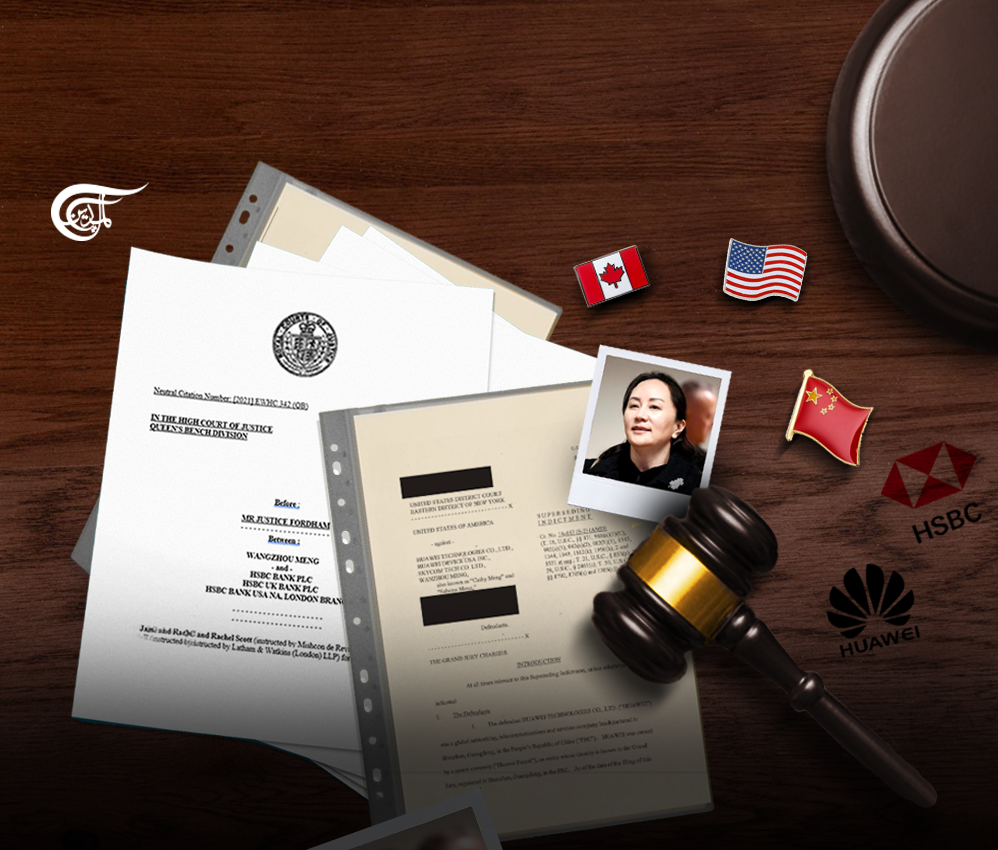HSBC’s Documents Relevant for Huawei’s Meng Case and China-Canada Relationship
The politically charged case of the Huawei Technologies' Chief Financial Officer Meng Wanzhou could jeopardize the relationships between the two great nations for many years to come.
The politically charged case of the Huawei Technologies' Chief Financial Officer Meng Wanzhou could jeopardize the relationships between the two great nations for many years to come.
Now is the chance for Canada to naturally sidestep the request to extradite Meng to the United States for alleged fraud, especially that the case seemed to have been ‘trumped-up’, and the Trump administration and its influence are gone, somewhat.
The fresh turn is that Meng’s lawyers claimed that the internal emails and bank documents prove there are no grounds to extradite her to the US.
The issue is that the US accuses Huawei of using a Hong Kong shell company called Skycom to sell equipment to Iran, in violation of US sanctions. And here is where Meng's role folds, as she is accused of committing fraud by misleading HSBC about the company’s business dealings in Iran.
But there are now HSBC documents showing that Huawei was open about its links to Skycom. Huawei Canada said: “These documents, consisting of emails and other HSBC records, show there is no evidence of fraud on HSBC…They show that Huawei’s control over Skycom was not kept from senior HSBC executives; that the continuing nature of Skycom’s business with Huawei in Iran was not kept from HSBC executives; that internal HSBC risk assessments were made based on knowledge of the true facts...”
It seems too hard to believe that HSBC executives and compliance officers were unaware of such relationships as Huawei is among its top 20 clients worldwide. HSBC “cleared more than $100m worth of transactions related to Skycom through the United States between 2010 and 2014”, says the US.
Huawei lawyers will now try to persuade the Canadian court to permit using the internal documents as evidence.
Earlier, US prosecutors submitted to the hearing that the HSBC documents show that the case record is selective, misleading, “manifestly unreliable”, and “outright false”.
But Robert Frater, the top lawyer in the Canadian Department of Justice – which is representing US interests in Meng’s marathon extradition battle – told the Supreme Court of British Columbia in Vancouver that the issue was not whether the documents were reliable or not.
“The issue here is relevance [to an extradition hearing]… relevance in this context means capable of showing that the evidence of the requesting state is manifestly unreliable,” Frater told Associate Chief Justice Heather Holmes. It was argued that the documents are irrelevant to the extradition process and should be reserved for a fraud trial in the US.
But if the entire case rests on whether Meng misled HSBC, how could the judge not consider such documents as evidence? How can that be irrelevant? Such possibly orchestrated effort has already failed. Although the UK High Court refused her legal team’s request to see relevant HSBC documents, Meng’s lawyers argued that the documents demonstrate that Meng did not lie or commit fraud in her coffee table presentation before the HSBC staff in Hong Kong. Meng’s team then made the same request to Hong Kong’s courts, which agreed that HSBC’s internal records were relevant to her extradition case.
Canada should choose wisely at this crossroads of China-Canada relationship. Canadian journalists predicted that the newly released HSBC-sourced documents are more than enough for Canadian Minister of Justice/Attorney General David Lametti to release Meng posthaste, and if not, she will likely get released on appeal to their Supreme Court.
The ongoing trial comes amid Washington's campaign to ban the Chinese telecom giant around the world. Ordering Canada to arrest Meng in 2018 reminds the world how US agents arrested French industrial conglomerate Alstom's senior leader Frederic Pierucci in 2013, and how US lawyers, companies, and government departments together "dismembered" Alstom, which had been a growing competitor to US companies.
Now is the time in which China is at the top of the league of the world for a few years in terms of exporting high-end technologies. So, it is a great opportunity to work with China in the high-tech business: providing know-hows, exporting parts, offering related services, and the like. The attempts to block Chinese technologies could backfire because it forces China to build its own. Huawei's new OS called HarmonyOS just came out without Google. What the world sees is just the tip of an iceberg about how prepared China is. The HarmonyOS had been an undisclosed backup within Huawei which hundreds of engineers have worked on for about a decade. It could have never been used if a win-win situation was reached. It is even better than the traditional operating system by enabling programmers to develop just one set of code that could be deployed across multiple smart devices, including mobile phones, tablets, automotive head units, smart TVs, smart watches, and IoT devices.
Should Canada risk losing both its business to China, as well as the reputation of its sound legal system?

 Benjamin Chiao
Benjamin Chiao
 5 Min Read
5 Min Read






